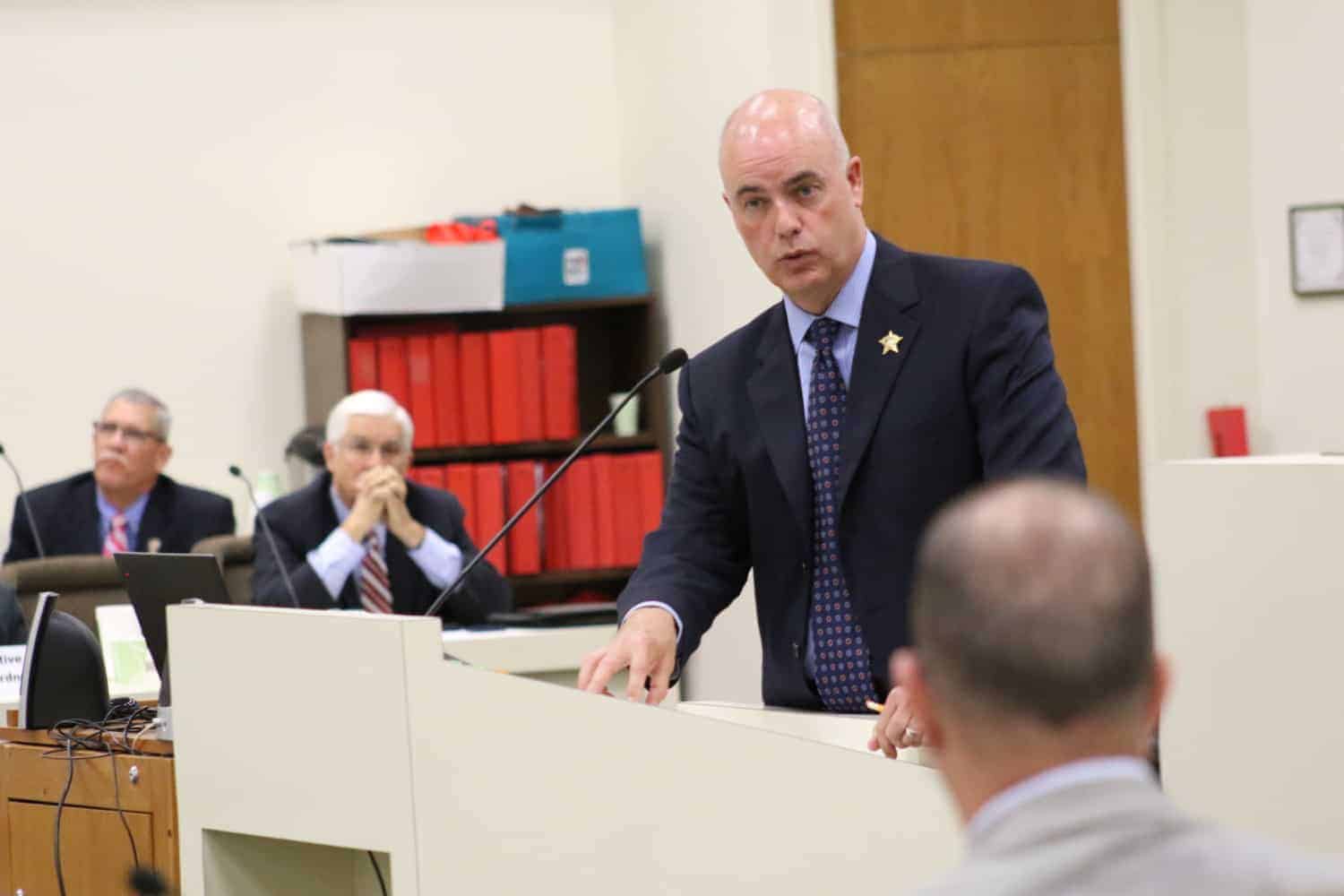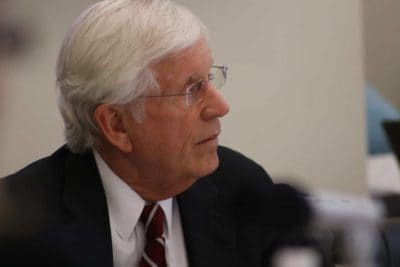When Mike Anderson served as a school resource officer, he also coached softball and football. Anderson, now a manager with the Department of Public Instruction’s Center for Safer Schools, thinks students should see officers outside of their uniforms.
“It allowed the teachers, one, to see me in a different role, but it allowed the students as well to see me as (a) more approachable person,” Anderson said to a subcommittee on physical safety in schools that met Tuesday as part of the larger House Select Committee on School Safety. Legislators on both sides of the aisle agreed school resource officers (SRO’s) need more training and better relationships with students and administrators.
Policy recommendations from the committee will likely see action during the upcoming legislative short session. “There is possibility within our system of law enforcement and education to do something we’ve never done before in solving this problem,” said Rep. John Faircloth, R-Guilford.
School safety and the role of school resource officers has been heavily examined since the mass shooting in a Parkland, Florida high school in February that left 17 students and staff members dead. In the same week, State House Speaker Tim Moore announced the creation of the committee which has two subcommittees: one focusing on physical safety, which met Tuesday, and one on mental health.
Ideas for solutions vary. In Rockingham County, the sheriff’s office and school district started efforts to recruit volunteer school resource officers where funding is not available. Students and educators calling for stricter gun control protested across the state.
Some suggested arming teachers to protect students. Joe Haas, executive director of the North Carolina Christian School Association, presented to the committee Tuesday and said private schools, if the parents that fund them desire, should be able to implement programs that arm and train certain teachers similarly to federal air marshals on planes.
“It’s just common sense that not knowing who the marshals are at a school would be a deterrent to any person who might want to be an active shooter at a nonpublic school,” Haas said.
Chip Hughes, former chair of Gov. Pat McCrory’s Task Force on Safer Schools, suggested required and specialized training for school resource officers. While traveling to schools across the state, Hughes said the position is taken more seriously by some officers and deparments than others.
In some cases, extensive selection processes are in place to hire the best person for the job, Hughes said. In others, he has seen sheriffs put officers in the position who are close to retirement or have lower skills. There are different tiers of training and certification available specifically for school resource officers through the North Carolina Justice Academy, but none of the additional training is mandatory.
Hughes said he would like to see required certification for school resource officers and training to keep that certification.
“Given where we are today and what society has thrown at us, I keep saying that I feel like these men and women (that) are in there have to be the best deputies and officers that we have to offer, just from the multiple hats they have to wear,” Hughes said.
Anderson said those hats do not just include combat training. He said he has talked with Justice Academy instructors about more extensive curriculum that covers a wide range of issues officers confront in schools.
“It’s not just the need for how to shoot in close quarters combat, edged weapon defense, and all that type of stuff,” Anderson said. “It’s also the disproportionate minority contact issues that we’re seeing in the state. It’s ways to pick out mental health issues. It’s giving them avenues and tools to be able to handle that stuff as well.”
Relationships between school resource officers, school administrators, and students were a big part of the subcommittee’s conversation. Rep. Yvonne Lewis Holley, D-Wake, emphasized concerns on “over-policing” of minority students.
“I think the group needs to hear that there is fear,” Holley said. “And the fear isn’t from a mass shooting. The fear is from a shooting from a resource officer or over-abuse.”
Rep. Susan Fisher, D-Buncombe, said local administrators in her region want more training for officers but less suspensions, expulsions, and arrests.
“(The administrators) said that if we increase the number of SRO’s and we work on better pay for them, that that would probably help, but that if escalating the number of SRO’s on campuses results in escalation of arrests rather than deescalation of incidents in general, that we will be in worse shape than we were when we got started,” Fisher said. “… We need to definitely increase the training of SRO’s. We need to make that a quality position. We need to make the pay better. But we don’t need to make that equal more suspensions and expulsions for students.”
On the other hand, multiple committee members had the opposite worry: that school resource officers are not able to enforce the law harshly enough because of school policy or administrators’ attitudes.
“Do we have documentation or is there any data to show how much lack of arrests and lack of dealing with incidents as infractions of the law encourages other to repeat the same action knowing there will be no consequence?” Rep. William Brawley, R-Mecklenburg, said, later adding, “What you tolerate you cannot change.”
Anderson frequently visits schools to discuss lockdown drills, which schools are required by the state to practice at least once a year. He recommended the same requirement be applied to charter schools. He also recommended clarifying language in school safety legislation and implementation of an accountability system to ensure schools practice drills as often as they should.
Rep. Carla Cunningham, D-Mecklenburg, stressed the importance of professionals in schools who can support students before a problem occurs.
“Instead of us waiting ’til the incident happens, we could be ahead of it if we would invest in school support staff like the psychologists, the nurses, or whatever,” Cunningham said.





